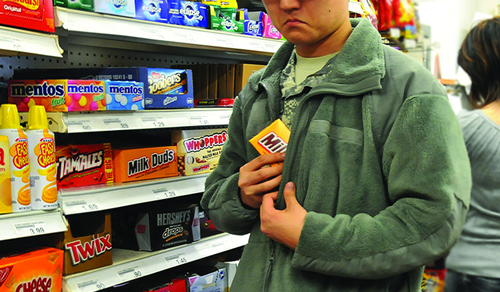Thanks to a ‘crumbling justice system’ which has forced courts prioritize crimes by seriousness, Canadian prosecutors are now letting petty criminals walk free for crimes such as shoplifting, minor assault and fraud, according to the CBC.
The president of Canadian Association of Crown Counsel says cases involving less serious crimes are either being dropped outright or shunted into restorative justice programs. He called it a regular occurrence, though specific numbers weren’t available.
“At some point, we have to make a decision: what crimes do you want us not to prosecute?” said Rick Woodburn, whose organization represents 7,500 Crowns across the country. –CBC
“And as you can see, it starts falling off the bottom. And sooner or later, we’re going to decriminalize, because we’re not prosecuting certain types of offences,” said Woodburn.
Due to a 2016 Canadian Supreme Court ruling known as the Jordan decision which protects offenders from unreasonable delays through the legal system, prosecutors are now focusing on major crimes such as homicides and sexual assaults.
In July 2016, the CSC overturned the drug convictions of Barrat Richard Jordan due to an unreasonable delay. Now – if a case is delayed by 18 months in provincial court, or 30 months in superior court, it’s considered unreasonable.
“Lower-end charges [are] being triaged and falling off our radar, because we have to keep an eye on the bigger cases of the homicides, sexual assaults, robberies,” said Woodburn, adding that the courts have now adopted a “triage system” to manage cases by seriousness of the alleged offense.
“When we look at our schedules, we have to make sure they’re falling within the Jordan timelines and that court time is not getting eaten up by a fraud under $200.”
Retailers are obviously very concerned
The Retail Council of Canada which represents over 45,000 retail merchants across the country has expressed grave concerns over recent developments.
“It’s really concerning for retailers, retailers of all sizes,” said the council’s Atlantic director, Jim Cormier. “The deterrent for theft and shoplifting in stores is, of course, often that there can be legal consequences.”
Last year, the retail council estimated that shoplifting accounts for up to $5 billion a year in losses for Canadian retailers. Cormier said shoplifting has an awful impact on retailers, and if it happens enough, it will cut into a company’s profits.
“Less profits means less ability to hire and pay staff. You know it means less tax revenue for the cities and towns in which these retailers are doing their business,” said Cormier.
Stephen O’Keefe, a consultant who helps companies with loss prevention, said it pains him when courts throw out shoplifting cases.
“When you have a company that experiences shrinkage in excess of their net profit, they have to shut their doors. We’ve experienced that in Canada over past years where we’ve had major brands, major retailers, who have closed their doors because they can’t absorb those shrinkage charges.” –CBC
In order to recoup their losses, some retailers are skipping criminal court completely – instead opting to take offenders to civil court, according to O’Keefe.
Woodburn insists that provincial governments as well as the federal government needs to set aside more money and resources for the criminal justice system – including more Crowns, judges, court staff and defense attorneys. Unless this happens, more delays and dropped cases are inevitable.
“Judges and justices are working themselves into the ground, Crowns are drowning in workload, defence lawyers are the same,” said Woodburn. “ou see them overworked. Staff and others are working overtime just to make sure people’s rights are not being infringed, and that as it is now is unsustainable.“
via ZeroHedge News http://bit.ly/2JPrSpT Tyler Durden
